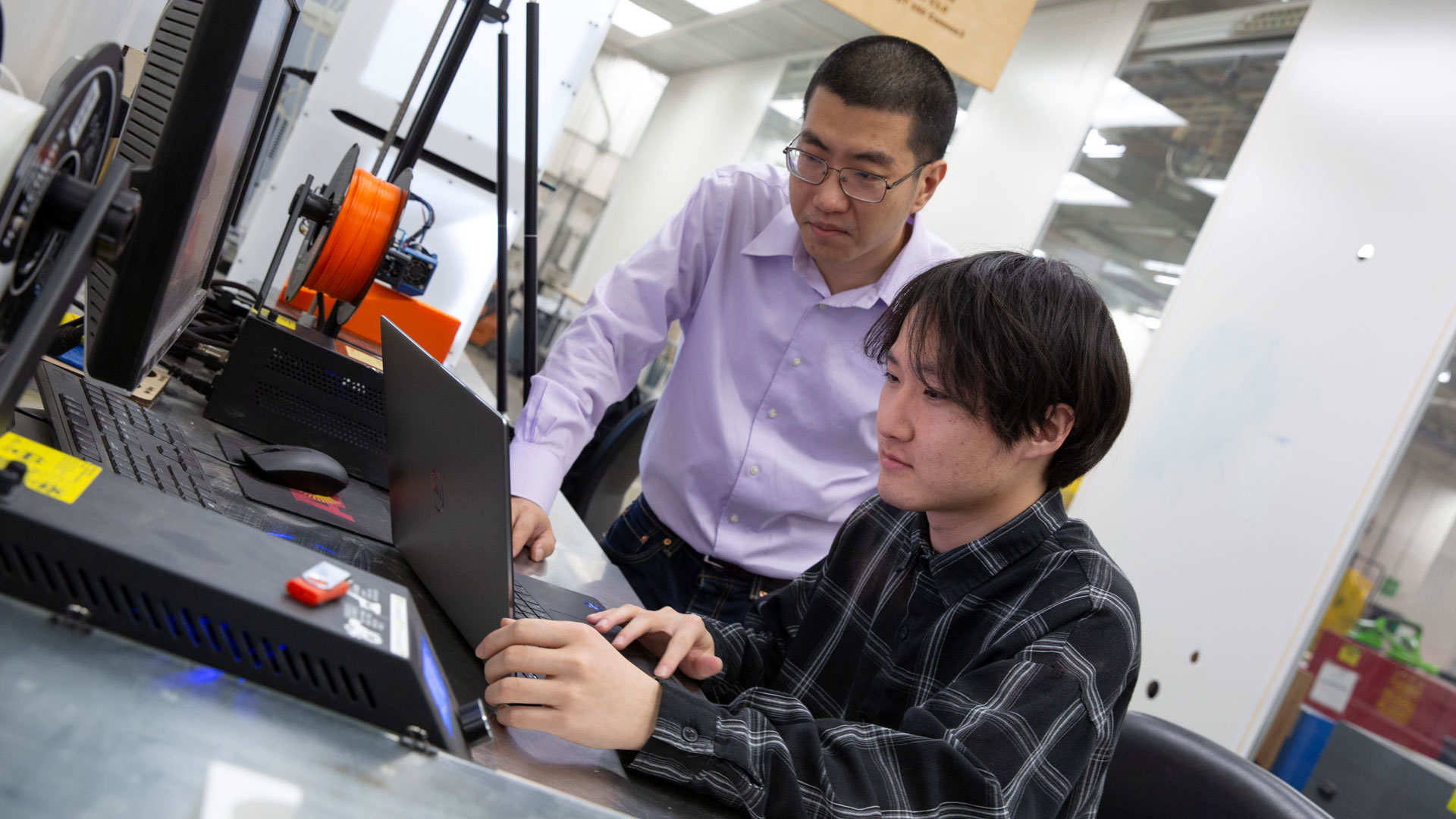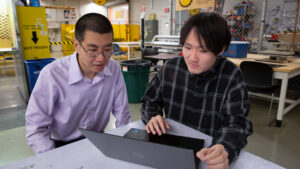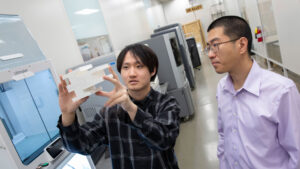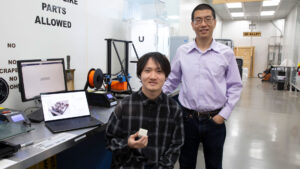Zhengbin Chen
Engineering (robotics)
Hometown: Dongguan, Guangdong, China
Graduation date: Spring 2024
Additional details: Transfer student
FURI | Spring 2023
Data Analysis and Modeling for Additive Manufacturing
This research aims at conducting a comprehensive data analysis to extract all the useful information for building a practical model and to excavate the relationship of additive manufacturing with powder. With this model, users can input their manufacturing setting to output the estimated probability of satisfying the criteria so as to improve additive manufacturing. For further research on this project, researchers recommend training this model with more user manufacture data and make the prediction model more precise.
Mentor: Andi Wang
Featured project | Spring 2023

Zhengbin Chen combines his interest in data analytics and his engineering skills for his FURI project to build a model that will estimate the probability of a successful build with additive manufacturing techniques. Chen is working on this project with faculty mentor Andi Wang, an assistant professor of manufacturing engineering, which will help reduce waste and make the additive manufacturing process easier for all.
What made you want to get involved in FURI? Why did you choose the project you’re working on?
I was thinking that I lacked the research experience to apply for a postgraduate program or a PhD, so I started to look for research opportunities at ASU and chose FURI. I think having research experience will help me better find a job and apply for a PhD in the future.
Data analysis is exactly the kind of research that I am looking forward to. The process of data analysis from scratch — from raw data at the beginning, to analyzing the relationship between data, to determining the relationship between data to establishing a model — is very interesting to me. I like establishing a relationship from chaos and disorder.
There are many aspects of Professor Wang’s knowledge that I want to learn. I think he is a very good and helpful professor.
How will your research project impact the world?
I hope this model can have an influence on making the world of 3D printing better. Everyone can use our model to predict the success rate of 3D printing.
No widely used 3D printing prediction success rate model exists today, and our model can be used to address this immediate need for people who often use 3D printing machines or companies that produce 3D printers.
Those who are interested in 3D printers can know the success rate of the manufacturing before printing their favorite models to avoid waste of materials, and companies that produce 3D printers can further amplify this advantage. If the model is added to the 3D printer itself and delivered to the customer together with the 3D printer, not only can the customer enjoy the benefit of this model, but the company can also use it to increase sales.
Have there been any surprises in your research?
There were many surprising moments. For example, I was very excited when my supervisor and I analyzed the data and we got a stable model. After obtaining the model, we found that its accuracy is very high, which means that people can use this model to accurately predict the manufacturing success rate of their 3D printing input.
What is the best advice you’ve gotten from your faculty mentor?
Always work hard and always make progress.
How do you see this experience helping with your career and advanced degree goals?
This kind of research experience can make you stand out and the skills you learn can make you even better. Through this research experience, I have improved both my programming skills and my data analysis skills. I am more accurate in seeing the relationship between the data. At the same time, after this research, I want to get a doctorate in the field of data analysis even more and start working in the field of industrial manufacturing. In the future, I hope that I can be a professor at a university like Dr. Wang.


